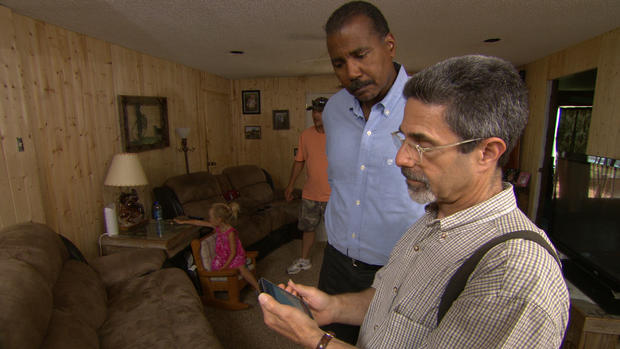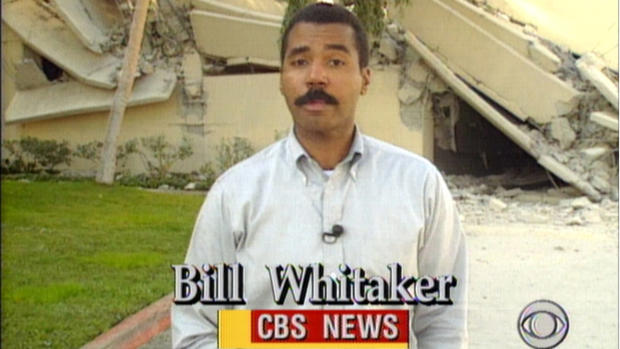When everything starts to shake, rattle and roll
Editor’s Note: This segment was originally published in May 2016. On Saturday, September 3rd, Oklahoma experienced a 5.8 magnitude earthquake that was felt across the Midwest -- a quake that was the largest in the state’s history.
60 Minutes producer David Schneider still remembers his first big earthquake. It was 1971 and he was growing up in Southern California when it jolted him awake one early February morning. It had struck near San Fernando -- 6.7 on the Richter scale.
“It terrified me,” Schneider says in the 60 Minutes Overtime video above. “I think it changed me. It made me fascinated with earthquakes, and scared of them at the same time.”
For his story on 60 Minutes this week, Schneider had a chance to investigate earthquakes in another part of the country: Oklahoma, where oil and gas companies are pumping billions of gallons of wastewater into the ground, which scientists say is prompting a growing spate of earthquakes.
“What makes the earthquakes in Oklahoma so shocking is that they are man-made,” says correspondent Bill Whitaker. “The earthquakes that are delivered by nature are horrible enough.”
Before 2009, there were, on average, two earthquakes a year in Oklahoma that were magnitude 3 or greater, the story explains. Last year, there were 907. Oklahoma is now the most earthquake-prone state in the continental U.S. That increase “is unprecedented,” Schneider says. “There’s been no experience like this around the world, really, in terms of just the sheer numbers.”
Schneider knows something about earthquakes. Not only is he a native Californian, but he’s long covered earthquakes as a journalist. Two years ago, he installed an app on his phone that shows him, in real time, when and where they strike. He started to notice earthquakes in Oklahoma happening almost every day.
While some of the Oklahoma earthquakes are relatively minor, they can feel stronger than ones of the same magnitude in California. “The earthquake is shallower oftentimes in a setting like this, and so you’re just that much closer to the earthquake itself,” explains Cornell University seismologist Katie Keranen. “The other difference is that the ground here is not as broken up, you might say, as in California, that has a long history of earthquakes and so the waves travel further [in Oklahoma] with stronger amplitude.”
Initially, Oklahoma residents assumed the earthquakes were due to fracking, in which water and chemicals are injected into the ground to release oil. Fracking has been known to cause small earthquakes elsewhere. But scientists now believe Oklahoma’s are a result of wastewater from regular drilling being pumped deep underground, into the layer of earth that sits on top of earthquake faults. As oil and gas production have increased in recent years, so has the amount of wastewater, hence the astonishing rise in earthquakes, they say.
For Whitaker, this week’s story brings back memories. In 1994, he was a reporter for CBS News and had recently been posted to California when the Northridge earthquake hit in the suburbs of Los Angeles. He remembers feeling as if a giant were outside shaking his house. “The windows were rattling. You could hear the nails bending as the wood turned,” he recalls. “The sound was almost worse than the shaking itself.”
Whitaker checked on his family, made sure there were no gas leaks, and then set out to report on the massive quake, 6.7 in magnitude, which killed 60 people and injured 7,000.
The experience has stuck with him. “After you’ve had an earthquake, and especially one that gives you a good jolt, when you feel it starting, you don’t know how big it’s going to get,” Whitaker says. “You don’t know if this one is going to be the big one. You just don’t know.”
The video above was originally published on May 8, 2016 and produced and edited by Lisa Orlando.

